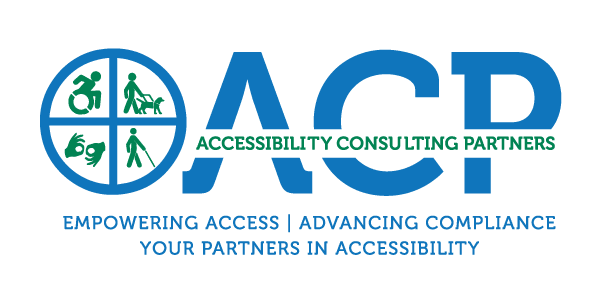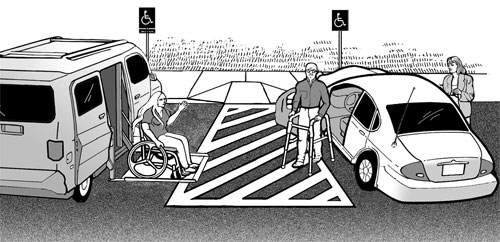
July marks the 34th anniversary of the signing of the Americans with Disabilities Act (ADA) by Former President George H.W. Bush. This landmark civil rights law was the result of tireless advocacy, including powerful demonstrations by those demanding equal access and equal opportunity. One of the most notable events was the 1990 “Capital Crawl,” where activists dramatically illustrated the barriers faced by individuals with disabilities by physically crawling up the steps of the U.S. Capitol. This powerful act of protest underscored the urgent need for the ADA and highlighted the pervasive inaccessibility that individuals with disabilities encounter daily.
Former President Bush described July 26, 1990, as a long-awaited ‘Independence Day’ when he signed the Americans with Disabilities Act (ADA) into law. The momentous occasion symbolized the opening of doors that had long been closed to individuals with disabilities, marking the dawn of an era characterized by equality, independence, and freedom. The ADA was a groundbreaking piece of legislation that sought to eliminate discrimination against individuals with disabilities, ensuring that they could fully participate in all aspects of society, from employment and public services to transportation and telecommunications.
The Rev. Harold H. Wilke, top left, accepts a pen from President George Bush with his left foot, after Bush signed into law the Americans with Disabilities Act of 1990 at a White House South Lawn ceremony July 26, 1990.

The ADA represented a significant shift in national policy, reflecting a commitment to the civil rights of individuals with disabilities. It recognized the inherent dignity and worth of every person, advocating for a society where everyone, regardless of physical or mental ability, could live with autonomy and respect. The ADA laid the groundwork for a more inclusive nation, challenging outdated perceptions and promoting equal opportunities in every facet of public and private life.
Since the passage of the ADA, countless barriers have been dismantled, paving the way for more accessible environments in workplaces, schools, and public spaces. People with disabilities represent more than 27% of the United States adult population, making them the single largest minority group in the country. The ADA has spurred innovations in technology and design, improving the quality of life for millions of Americans. For example, the NIH Working Group on Diversity’s Disabilities Subgroup Report highlights continued efforts to promote inclusivity and accessibility in research and development. The report outlines initiatives aimed at enhancing the representation and participation of individuals with disabilities in biomedical research, emphasizing the importance of creating an inclusive environment that supports diverse talents and perspectives.
Despite these advancements, the journey toward full inclusion continues, as there remains much work to be done to achieve true equity and access for all individuals with disabilities. The anniversary of the ADA is both a celebration of the progress made and a call to action to continue striving for a society where everyone can thrive.
Organizations like Accessibility Consulting Partners Inc. (ACP) play a crucial role in continuing the mission of the ADA. ACP is dedicated to ensuring accessibility in all areas of life through a comprehensive approach that includes evaluating access to buildings, facilities, transportation systems, and public services to meet ADA standards. By working with cities, regional transportation departments, and various organizations, ACP helps create communities that are more navigable and inclusive for all individuals. Our team of experts conduct thorough assessments of existing infrastructures, identifying barriers that hinder accessibility and proposing practical, effective solutions to overcome them. We collaborate closely with local governments to develop and implement transition plans that prioritize accessibility improvements in public spaces.
Additionally, ACP engages with private sector organizations to promote inclusive practices within businesses and commercial facilities. We provide training and resources to help companies understand and fulfill their responsibilities under the ADA, ensuring that their services are accessible to all customers and employees. Our efforts extend to educational institutions, healthcare facilities, and recreational areas, working to provide guidance that support the diverse needs of their communities.
Through these initiatives, ACP strives to break down the physical barriers that limit opportunities for people with disabilities. We believe that accessibility is a fundamental right and that inclusive design benefits everyone. By championing accessibility in all facets of society, ACP contributes to the creation of more vibrant, equitable communities where every individual can thrive.

